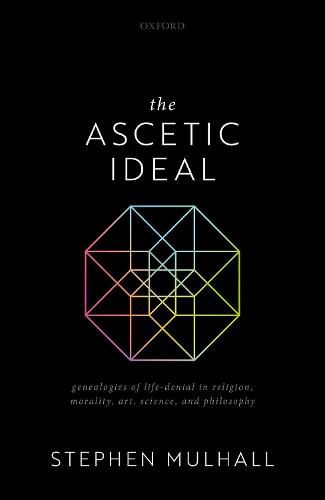The Ascetic Ideal: Genealogies of Life-Denial in Religion, Morality, Art, Science, and Philosophy
Stephen Mulhall (Professor of Philosophy and Fellow of New College, Professor of Philosophy and Fellow of New College, University of Oxford)

The Ascetic Ideal: Genealogies of Life-Denial in Religion, Morality, Art, Science, and Philosophy
Stephen Mulhall (Professor of Philosophy and Fellow of New College, Professor of Philosophy and Fellow of New College, University of Oxford)
In The Ascetic Ideal, Stephen Mulhall shows how areas of cultural life that seem to be either essentially unconnected to evaluative commitments (science and philosophy) or to involve non-moral values (aesthetics) are in fact deeply informed by ethico-religious commitments, for better and for worse.The book develops a reading of Nietzsche’s concept of ‘the ascetic ideal’, which he used to track the evolution, mutation, and expansion of the system of slave moral values, associated primarily with Judaeo-Christian religious belief through diverse fields of Western European culture–not just religion and morality, but aesthetics, science, and philosophy. Mulhall also offers an interpretation of Nietzsche’s genealogical method that aims to rebut standard criticisms of its nature, and to emphasize its potential for enhancing philosophical understanding more generally. The focus throughout is on developments in those fields which occurred after the end of Nietzsche’s intellectual career, and in particular on influential modes of thought and practice that have a contemporary significance. The goal is not simply to argue that Nietzsche’s diagnosis and critique retains considerable merit, but also to show that Nietzsche is himself significantly indebted to the ideals he criticizes, and that this opens up a possibility of synthesizing elements of his approach with those drawn from its target. Hence, the book also tracks various ways in which the object of Nietzsche’s criticism has undergone further mutations (just as his genealogical method would suggest), and in doing so has generated ways of pursuing the values central to asceticism that avoid Nietzsche’s criticisms, and might even further his own goals.
This item is not currently in-stock. It can be ordered online and is expected to ship in approx 4 weeks
Our stock data is updated periodically, and availability may change throughout the day for in-demand items. Please call the relevant shop for the most current stock information. Prices are subject to change without notice.
Sign in or become a Readings Member to add this title to a wishlist.

